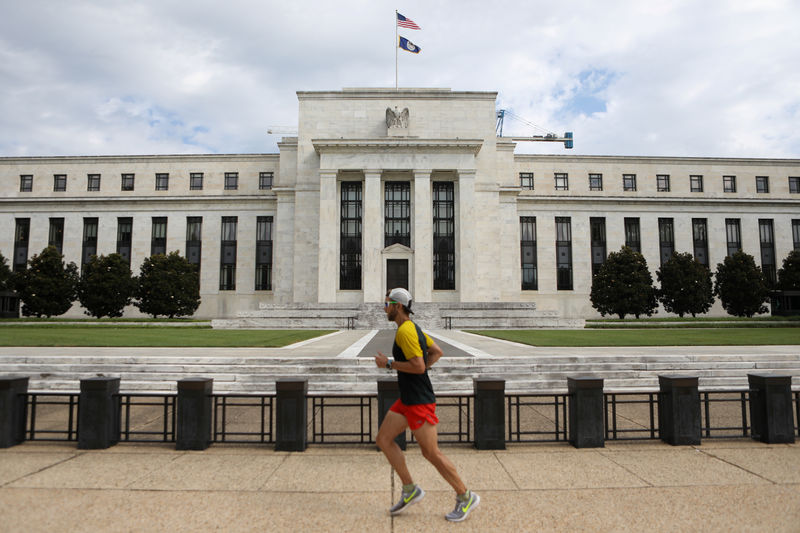(Bloomberg) -- The U.S. economy has lost momentum in recent weeks because of a resurgence of the coronavirus and that may call for more sustained fiscal support to cushion the blow, a senior U.S. central banker said.
“We thought the economy faced a pothole and stimulus put a plate over it so we could navigate,” Federal Reserve Bank of Richmond President Thomas Barkin told a webinar hosted by the Center for Regional Economic Competitiveness Tuesday. “Now escalation of the virus may make the pothole into a sinkhole and that would create the need for a longer plate. If Congress takes away support too abruptly, you know what could happen to my metaphorical automobile.”
The Federal Open Market Committee left interest rates near zero in July, having cut them in March in response to the virus-induced recession, and pledged to use all its tools to support the recovery. Officials have also repeatedly said that additional fiscal support will be needed.
U.S. lawmakers, who authorized some $3 trillion in fiscal aid in the early months of the crisis, are still haggling over fresh support even after some of that assistance has expired. President Donald Trump moved to implement executive orders over the weekend to at least partially extend expired unemployment aid and defer payroll taxes.
U.S. unemployment declined 10.2% in July from 11.1% the month before as the economy slowly began to reopen and employers brought staff back to work. But the jobless level remains above the peak of the 2007-2009 recession and Barkin warned that Covid-19 flare-ups around the country were hitting the rebound.
Flattening Momentum
“The resurgence in the virus in the last few weeks has clearly flattened out momentum,” Barkin said. “The path of the economy still depends on the course of the virus. It obviously hasn’t been deterred by warmer weather, unfortunately.”
Barkin said the outlook could be become clearer over the next few weeks depending on the virus and the amount of fiscal support. “Escalation could be a significant jolt to confidence,” he said. “The path forward also depends on the evolution of stimulus. The fiscal side is unclear as you know.”
Lower-paid services employees quickly spent money that was provided in the initial package, while white-collar workers increased savings, Barkin said. The aid offset some of the blow to economic growth in the past few months, he said. State and local governments would be forced to make cutbacks without additional fiscal support, he said.
©2020 Bloomberg L.P.
